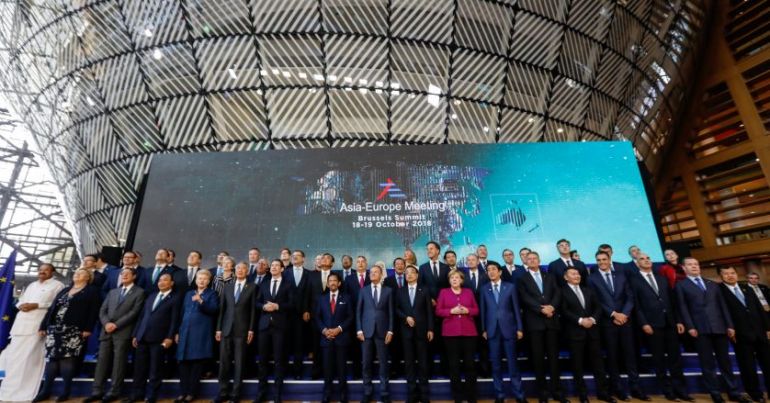On 18-19 October 2018, the 12th ASEM Summit (ASEM12) was succesfully held in Brussels, Belgium. The ASEM Summit brought together:
- heads of states or governments of 51 European and Asian countries
- representatives of the European Union
- the Secretary General of the Association of Southeast Asian Nations (ASEAN)
The summit was chaired by the European Council President Donald TUSK, European Commission President Jean-Claude JUNCKER and High Representative for Foreign Affairs and Security Policy Federica MOGHERINI, also represented the EU at the summit.
Discussions focused on the theme“Europe and Asia: Global Partners for Global Challenges”.
More information on the ASEM Summit can be read on the ASEM Infoboard.
‘Education’ in the ASEM12 Chair’s Statement
Leaders recognised the importance of access to quality education as a basic human right and a tool for responsible citizenship, economic prosperity and resilience of society, and reaffirmed the conclusions of the 6th ASEM Education Ministers’ Meeting (ASEM ME6). Leaders also recognised the value of involving business and industry in official education, and of enhancing the use of digital tools in teaching and learning. Leaders recalled the role of lifelong learning, including Technical and Vocational Education and Training (TVET) and human resources development to ensure employability by providing individuals with the skills needed to thrive in a globalised and digitalised world. They recognised mobility schemes, including the Erasmus+ programme, the Marie Skłodowska-Curie scholarships and the ASEM-DUO Fellowship Programme.
Leaders reiterated that the ASEM Education process aims at inclusion and equality by building comprehensive education systems, accessible to all. Leaders stressed that no one must be left behind and committed to address the needs of all, notably those with disabilities, with disadvantaged socio-economic and migrant backgrounds, as well as the most talented learners.
Leaders committed to achieve gender equality and women’s empowerment by supporting quality education for all, gender-sensitive and transformative policies addressing the multiple challenges that girls and women face, including multiple forms of discrimination, limited access to economic and social opportunities, as well as essential services, such as healthcare. In furtherance of the 2030 Agenda for Sustainable Development, Leaders expressed support for expanding opportunities for girls to access twelve years of quality education taking into account national circumstances. They highlighted the importance of female participation in science technology engineering and mathematics (STEM).
(ASEM12 Chair’s Statement 27)
